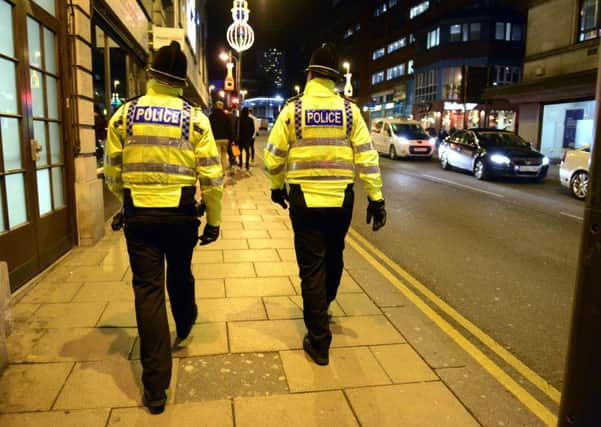Holly Lynch: Assaults on our brave emergency service staff are attacks on us all


They routinely go above and beyond their duties to keep the public safe, yet when someone sets out deliberately to injure or assault an emergency responder, the laws in place must convey how unacceptable that is in the strongest possible terms. My new Bill sets out to do just that following my “Protect the Protectors” campaign.
To assault a police officer is to show a complete disregard for law and order, our shared values and democracy itself and that must be reflected in sentencing, particularly for those who are repeat offenders.
Advertisement
Hide AdAdvertisement
Hide AdMany officers described feeling like they had suffered an injustice twice – first at the hands of the offender; and then again in court when sentences were unduly lenient. Official Home Office statistics suggest that there were just over 23,000 assaults on police officers last year. That is 450 a week, and it equates to an officer being assaulted every 22 minutes.
My Bill would protect not just police officers, but all blue-light emergency responders. A report published by Yorkshire Ambulance Service revealed that staff faced “violence and aggression” on a weekly basis. There was a 50 per cent increase in reported incidents of verbal and physical attacks on staff, with 606 incidents reported in 2015-16. Richard Bentley, a paramedic in Leeds, told the BBC that he had faced three serious assaults in five years. He had been bitten, head-butted and threatened with a knife.
Members of West Yorkshire Fire and Rescue Service have also reported being subject to assaults. On Bonfire Night, the service received 1,043 calls, with crews attending 265 incidents. It was disgraceful that, faced with such pressures on the busiest night of the year, firefighters in West Yorkshire were also subject to 19 attacks overnight.
The Bill would ensure that anyone who assaults an emergency service responder, doctor or nurse, and is charged with malicious wounding, grievous bodily harm, actual bodily harm or common assault, would be eligible for a tougher sentence because an assault on an emergency service worker is an assault on society.
Advertisement
Hide AdAdvertisement
Hide AdThe second aspect of the Bill aims to deal with the hideous act of spitting at emergency service workers. As well as being horrible, spitting blood and saliva at another human being can pose a very real risk of transmitting a range of infectious diseases, some with life-changing or even lethal consequences.
I have met PC Mike Bruce and PC Alan O’Shea of West Midlands Police. Both officers had blood spat in their faces while trying to arrest a violent offender. They both had to undergo antiviral treatments to reduce their risk of contracting communicable diseases, and they faced a six-month wait to find out whether the treatment had been successful. During that time, PC O’Shea was advised that he could not see his brother, who was undergoing cancer treatment, because the risk of passing on an infection was too high. He was also advised not to see his parents because they were in such regular contact with his brother.
PC Bruce had a false positive result for hepatitis B, and for six months until conclusive test results came through, he was understandably reluctant to be close to his wife or children, fearing for their wellbeing.
In previous speeches I have made on the issue, I shared with MPs the story of Arina Koltsova, a police officer in Ukraine who died after contracting tuberculosis from an offender who spat at her while she was trying to arrest him. At the moment, if an emergency service worker is spat at, they can take a blood sample from an individual only if that person gives their permission. Needless to say that in the case of PC O’Shea and PC Bruce, the offender was not in a helpful mood, so they were subjected to antiviral treatments and a six-month wait.
Advertisement
Hide AdAdvertisement
Hide AdLaws in Australia provide that refusal to give a blood sample can result in a $12,000 fine and a custodial sentence. My Bill would mean that refusing to provide a blood sample will, in itself, be a crime punishable by fine or custodial sentence. If an emergency service worker, doctor or nurse has already had to endure being spat at, this measure would hopefully save them having to endure a six-month ordeal of waiting to see if the consequences are much more serious.
As well as police officers, paramedics, firefighters, doctors and nurses are sadly also in need of these protections, yet it is worth remembering that when they find themselves under attack, it is the police who are called. I hope that this change in sentencing will go a small way towards giving these dedicated public servants the protections they should not require, but sadly do.
Holly Lynch is the Labour MP for Halifax who set out the Crime (Assaults on Emergency Services Staff) Bill in Parliament this week. This is an edited version.